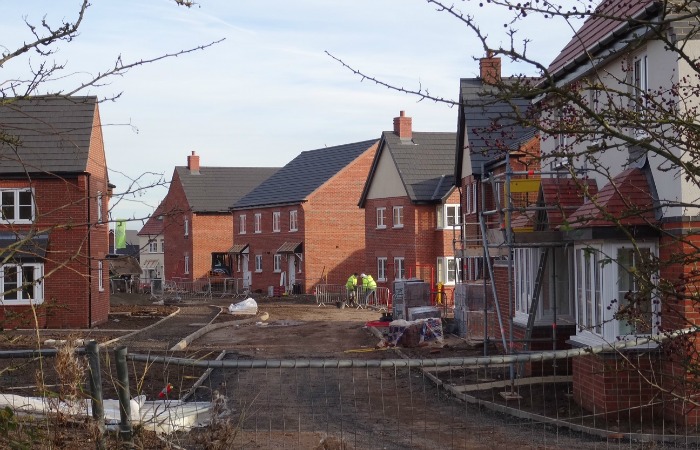
Buying a new home can be a significant investment and life event.
This is because it involves a substantial financial commitment and a significant lifestyle change.
For many, buying a home represents a long-term investment in their future and a symbol of stability and success.
It can also provide a sense of pride, ownership, and personalisation that is not possible with renting.
The buying process involves several steps that require careful consideration and planning of which one of the first is to decide how you wish to buy the property. Some buyers (and sellers for that matter) chose to buy through Property Auctions, whereas others prefer to use an estate agent or buy privately. Both have a plethora of benefits, so its worth spending time working out which is best for your situation.
The buying process can be stressful. But it is also very exciting and rewarding, and with proper preparation and guidance, it can be a really smooth and pleasant journey.
It offers the opportunity to find and create a home that reflects your lifestyle and personality. Below are essential steps to take when buying a new home.
Determine Your Budget
Setting a budget is essential when buying a new home because it helps avoid overspending and financial stress.
Without a budget, you may purchase a home beyond your means, leading to debt and financial hardship.
Setting a budget allows you to prioritise your expenses. It also ensures you can comfortably afford monthly mortgage payments and other associated costs.
What you can afford depends on your income, costs, and savings. Use online calculators or consult a financial advisor to estimate your maximum home-buying budget.
You should also consider property taxes, home insurance, and maintenance costs. This is to ensure you can afford the total cost of homeownership.
You can also look into available financing options. Financing options for a new home include mortgages and loans. A mortgage is a loan specifically designed for buying a home.
It typically requires a down payment and monthly payments with interest. Loans can also be used for home buying but may have higher interest rates and shorter repayment terms than mortgages.
Researching and comparing financing options is essential to find the best fit for your budget and needs.
Choose A Location
Location matters when buying a new home. This is because it can significantly impact your quality of life and property value.
The right location can provide easy access to essential amenities like schools, healthcare, shopping, etc.
It can also reduce commuting time and costs, improving your work-life balance and overall satisfaction with your new home.
Consider your wants and needs when choosing a location. Think about the neighbourhood you want to live in. Consider its proximity to your workplace, schools, and public transportation.
Think about the local amenities that matter most to you. Researching the area’s crime rate, environmental factors, and property values is also essential.
The proximity to essential public services, such as hospitals and fire stations, is also crucial.
In your search for homes for sale Estero FL (or wherever you are planning to move to), watch for communities that value and encourage social participation.
By carefully considering the criteria mentioned above, you’ll be able to settle into a home that’s perfect for you.
Find A Real Estate Agent
Real estate agents are well-versed in the local market and can offer helpful advice and assistance at every stage of the purchase.
An agent can help you find properties that meet your needs and preferences, negotiate offers and contracts, and ensure a smooth closing process.
Request recommendations from people you know who have recently hired an agent.
You can also research agents online and read reviews from previous clients. Look for a local agent that specialises in the type of property you want.
Interview potential agents and ask about their approach to communication, negotiation, and client service.
Agent-client relationships are based on trust, communication, and respect. Your agent should listen, provide honest advice, and keep you informed throughout the purchase process.
They should also answer your queries and work hard to assist you in reaching your goals. By working with a reputable and experienced agent, you can benefit from their expertise and knowledge.
You can also rest assured you’re making informed decisions in the home-buying process.
Make An Offer
You should make an offer to the seller when you find a house you want to buy.
This typically involves submitting a written proposal, along with a deposit or earnest money.
The seller can accept, reject, or counter your offer, leading to negotiations back and forth until an agreement is reached.
When negotiating with the seller, you must know your budget and what you’re willing to spend.
Other considerations are the home’s condition, repairs, and the local market. You also require a warranty covering the house if your home is a new build.
When buying a new home, it is crucial to have a building warranty insurance to protect your investment. If you need assistance with building warranties, you may reach out to BuildSafe.
Their over 40-year history gives you peace of mind that a reputable company is handling your warranty.
Once your offer is accepted, you must review and sign a purchase agreement. This document specifies the purchase price, contingencies, and closing date.
It’s essential to understand the contract and contingencies, such as financing, inspection, and appraisal contingencies, and to seek advice from your agent or attorney if needed.
After the offer is accepted and the contract is signed, you’ll typically have a period to complete inspections, finalise financing, and complete any other contingencies outlined in the contract.
You can proceed with the closing and take possession of the home once all contingencies are satisfied.
Close The Deal
Closing is the last phase in the home-buying process. This is where you take legal possession of the property.
During closing, you’ll review and sign various documents, including the mortgage agreement, deed of trust, and title transfer. You’ll also pay any closing costs and fees associated with the sale.
Before closing day, you must review all the paperwork and documentation to ensure accuracy and completeness.
You may need to do a final walk-through inspection to verify that agreed-upon repairs have been made.
It’s essential to follow up with any remaining tasks, such as transferring utilities, changing your address, and updating your insurance coverage once the deal is finalised.
Key Takeaway
Remember, buying a new home is a significant investment and life event.
Following this guide and seeking professional guidance can make the process smoother and more enjoyable.



















Recent Comments